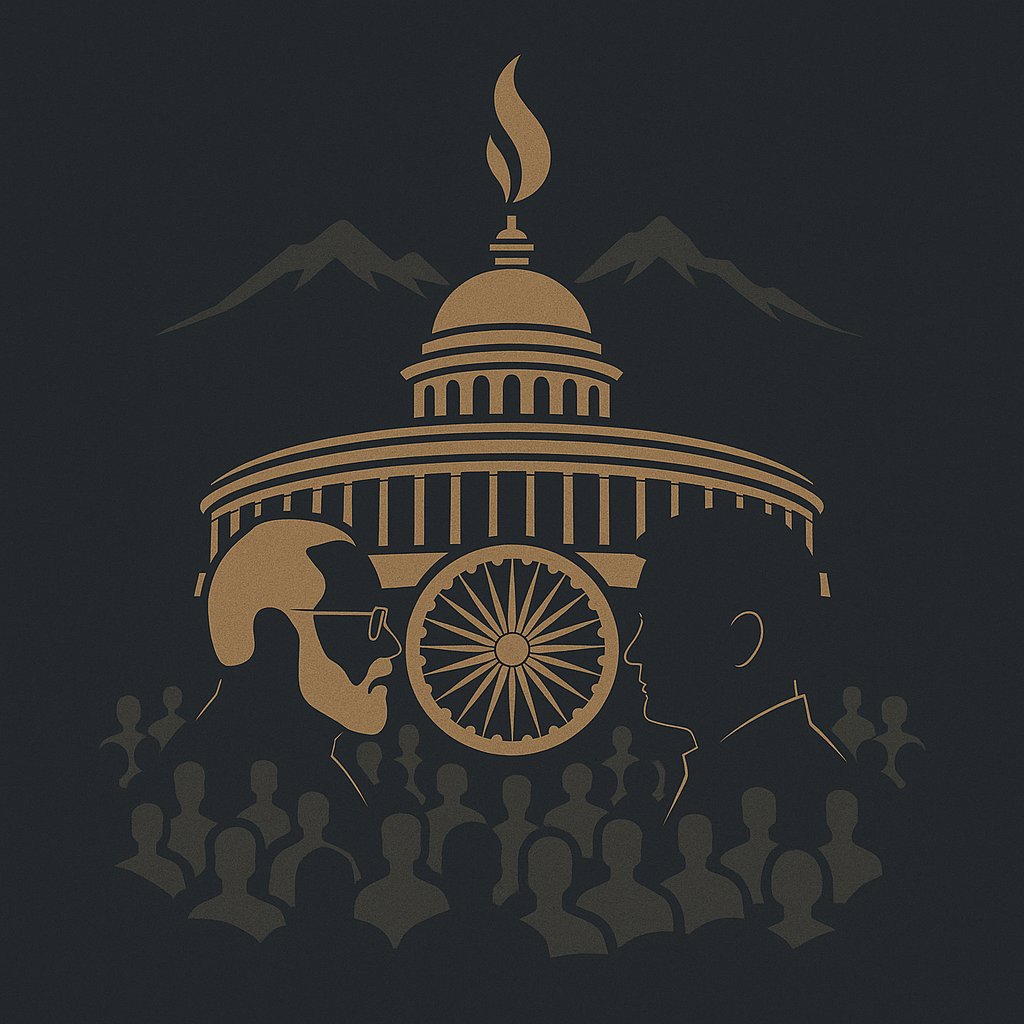The Litmus Test of Bharatiyata: Indian Parliament Gathers in the Shadow of Pahalgam
When a civilization as old as human memory is forced to speak the language of war, it does so reluctantly but certainly not softly. This week, the Indian Parliament is gathering to face its reflection in the cracked mirror of national trauma of Pahalgam that we already seem to have gotten over.
The strikes under Operation Sindoor, targeted against Pakistan-sponsored terror infrastructure, have ignited the most consequential test of democratic resolve since the attack. But the stakes here are civilizational.
Prime Minister Narendra Modi’s address in Gangaikonda Cholapuram was deliberate. The site--a monument to imperial endurance--was perhaps chosen by symbolism.There, under the gaze of Chola greatness, he framed the strikes as a declaration: there are no safe havens for terrorists or their patrons. It was a message to the world and to India that is Bharat itself.
Yet the Parliament now convening must answer a different question. Both what was done and what comes next. The operation may have silenced a few guns across the Line of Control, but it has unleashed a storm within--questions of statecraft, credibility, and moral clarity.
The Opposition will be arriving with intent, and that will not be without cause. Pahalgam was targeted, ideological violence. The tourists were selected by faith--a line crossed both by terrorists and by the silence that followed.
A line that demands unity by recognition. To speak of Pahalgam merely as a terror attack is to abstract its horror.
It was an attack on our plural soul, and that truth must be spoken aloud in Parliament, without fear of political fallout. By targeting those who sing the hymns that have forever been resonating along the banks of Maa Ganga, the orchestrators of Pahalgam expected the plurality of India, its sheer diversity to be shattered.
To ignore that fact and look the other way would be a travesty that will be closely watched and easily understood by, yes, the vast majority of Indian population. And it will also have resounding electoral fallouts.
For years, national security has been brandished as a partisan sword--wielded more for electoral advantage than for actual safety. But statistics do not bend to narrative. Uri, Pulwama, now Pahalgam--these are a pattern.
The BJP's challenge is to explain recurrence, the chronology. Strength that cannot prevent repetition begins to resemble performance.
The Opposition, for its part, must walk a finer line. It cannot afford to appear opportunistic with grief. Yet it has a constitutional duty to demand accountability.
Jairam Ramesh’s invocation of Donald Trump’s claim--of having halted Operation Sindoor by threatening India’s trade interests--may seem like geopolitical theatre, but it calls for scrutiny. Was India’s sovereign right to retaliate interrupted by external pressure?
If yes, it must be admitted. If no, it must be disproved. Silence only breeds suspicion.
The Parliament is not a stage for choreographed indignation. It is the place where popular will meets constitutional responsibility. The coming debate--spanning sixteen hours and then some--must not be allowed to decay into rhetoric.
It must be grounded in fact, sharpened by accountability, and elevated by moral seriousness.
The armed forces have acted with precision and courage. That is settled. But democratic strength is measured in the ability to absorb trauma without surrendering truth.
The true retribution lies in what is done after it--whether perpetrators will be brought to justice, whether systemic failures will be addressed, and whether Parliament will state that the State, above all, is the guardian of the innocent.
The temptation in moments like these is to trade clarity for comfort, to allow nationalism to eclipse nuance. But Pahalgam does not allow for euphemism. It was a scar across the conscience of this nation. To deny its religious targeting is to ignore its essence.
To exaggerate the government’s response is to trivialize its pain. Between these poles lies the path of democratic integrity.
In this land where sages still debate metaphysics under the trees where emperors built empires of bronze and stone, our leaders must debate something more fragile--trust. The people have watched jets take flight. Now they want answers that won't be proven wrong tomorrow.
The world, too, is watching--some with support, others with schadenfreude. But the Parliament does not need validation from beyond its borders.
What it needs are leaders worthy of its flag, courageous in dissent, principled in defense, and above all, unafraid to name what has been done--and what must be done now.

